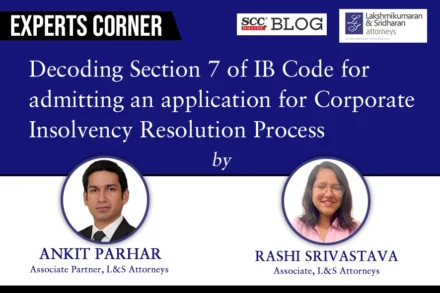
Decoding Section 7 of IB Code for admitting an application for Corporate Insolvency Resolution Process
by Ankit Parhar† and Rashi Srivastava††
Cite as: 2023 SCC OnLine Blog Exp 55

by Ankit Parhar† and Rashi Srivastava††
Cite as: 2023 SCC OnLine Blog Exp 55
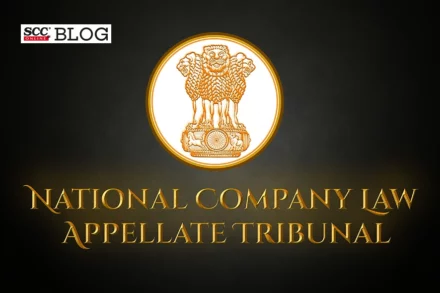
NCLAT directed the new Resolution Professional to protect the assets of the Corporate Debtor as required under S. 25(1) of the IBC

The NCLAT set aside Adjudicating Authority’s order initiating CIRP of the Corporate Debtor.

“The Adjudicating Authority does not appear to have committed any error in holding the alleged disputes claimed by the Corporate Debtor to be feeble as it is not supported by credible evidence.” NCLAT

While upholding NCLT’s order the NCLAT held that in the present case there is a debt which remained unpaid by the Operational Creditor.
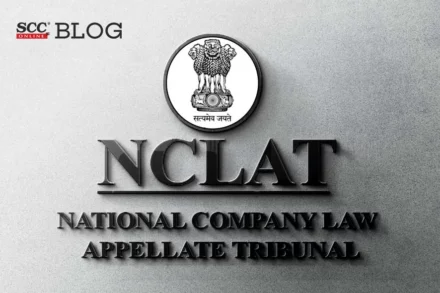
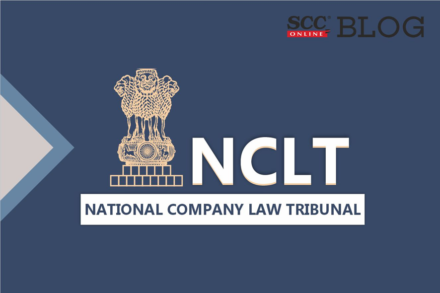
A creditor has limited grounds to object to S. 10 of IBC application.

NCLT imposed cost to restain Trimex Industries (P) Ltd. from filing frivolous applications which consume Tribunal’s valuable resources and time.
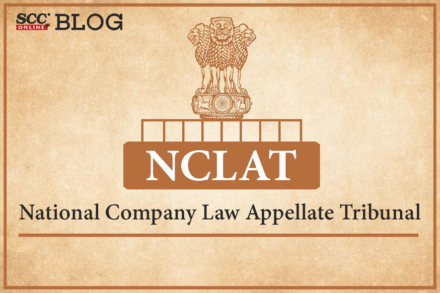
There is no need to prove any fraudulent intent for a preferential transaction as per S. 43 of the IBC.

“Any settlement after passing of the impugned order and after constitution of the CoC is only permissible when the same is approved with 90% vote share of CoC.”

The scope and objective of the Code is ‘Resolution’, and not a ‘Recovery Mode / Forum’.

The National Company Law Appellate Tribunal held that no pre-existing dispute regarding quality of supplied goods exist as the same was not raised before consumption of the goods.


National Company Law Appellate Tribunal observed that as per S. 61(2) every appeal must be filed within 30 days before the Appellate Tribunal and the Appellate Tribunal has the jurisdiction to extend the period of 15 days if it is satisfied that there is a sufficient cause for not filing the appeal within the prescribed time.

The NCLAT held that even after completion of challenge mechanism under CIRP Regulation 39(1A)(b), the CoC retains its jurisdiction to negotiate with one or other Resolution Applicants, or to annul the Resolution Process and embark on to re-issue RFRP.

NCLAT observed that allowing present appeal holding the Successful Resolution Applicant ineligible would automatically make the resolution plan redundant.

The NCLAT held that there is no law which allows a third party or shareholders to settle the claims of Financial Creditor on behalf of the Corporate Debtor, M/s McDowell Holdings Limited.

NCLT held that the amount of advance paid for purchase of shares of the Corporate Debtor does not fall under the definition of Financial Debt as it was not disbursed against the consideration for the time value of money.
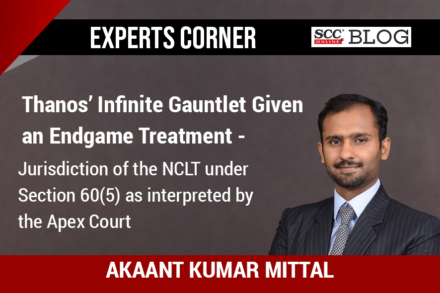
by Akaant Kumar Mittal†
Cite as: 2023 SCC OnLine Blog Exp 23

In matter related to reconsideration of Resolution Plan after approval, NCLAT held that thought the object of the CIRP is maximisation of value of the Corporate Debtor, but the said maximisation must be achieved within the timeline provided in the scheme.